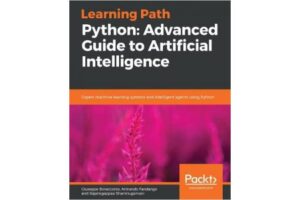Authors: John D. Kelleher, Brian Mac Namee, Aoife D'Arcy
The second edition of “Fundamentals of Machine Learning for Predictive Data Analytics” provides a comprehensive and accessible introduction to the core concepts of machine learning, balancing theoretical understanding with practical applications. Authored by John D. Kelleher, Brian Mac Namee, and Aoife D’Arcy, this textbook serves as an invaluable resource for beginners and intermediate practitioners in the field of AI, offering a detailed exploration of machine learning approaches used in predictive data analytics.
Content and Organization
Its well-structured content makes the book strong. The content is thoughtfully organized to cater to both theoretical comprehension and practical application. The authors cover a broad range of machine learning approaches, from traditional models to recent developments such as deep learning. Explanatory work examples and case studies enhance the reader’s understanding by demonstrating how these models apply in real-world scenarios, including price prediction, risk assessment, customer behavior prediction, and document classification.
Accessible Approach
One of the notable features of this textbook is its accessibility. The authors skillfully present technical and mathematical material in a way that is approachable for readers with varying levels of technical expertise. Nontechnical explanations precede the introduction of mathematical models and algorithms, ensuring that beginners can grasp the underlying ideas before delving into the more complex aspects of machine learning.
New Developments and Expansions
The second edition reflects recent advancements in the field of machine learning. A new chapter on deep learning acknowledges the growing significance of this subfield, providing readers with insights into one of the most transformative developments in recent years. Additionally, the inclusion of two new chapters on unsupervised learning and reinforcement learning broadens the scope of the book, offering a more comprehensive understanding of machine learning beyond predictive analytics.
Case Studies and Real-World Application
The integration of case studies throughout the book adds practical relevance to the theoretical concepts. Readers are guided through specific data analytics projects, from formulating business problems to implementing analytics solutions. This real-world application is crucial, bridging the gap between theory and practice. It helps readers understand how learning predictive models aligns with broader business contexts.
Pedagogical Value
The book’s pedagogical value is evident in its focus and depth. Providing detailed knowledge of core concepts, the authors equip readers with a solid foundation. This foundation supports further exploration in the field. Whether used at the introductory level or as a reference for professionals, the content is structured for a gradual and thorough understanding of machine learning principles.
Limitations
While excelling in covering fundamental concepts and applications, the book’s pace may challenge some readers, especially when covering advanced topics. A more gradual progression in complexity, especially in the later chapters, might have accommodated those still building their foundational knowledge.
“Fundamentals of Machine Learning for Predictive Data Analytics” adeptly balances theory and application in the machine learning field. The authors present information in an approachable style, accompanied by relevant examples and case studies. This makes the book an ideal companion for beginners and intermediate AI professionals. Recent developments and expansions in deep learning, unsupervised learning, and reinforcement learning enhance the textbook’s contemporary relevance. As the demand for practical knowledge in predictive data analytics grows, this edition becomes a valuable tool. It helps those seeking to understand and implement machine-learning techniques in real-world scenarios.





